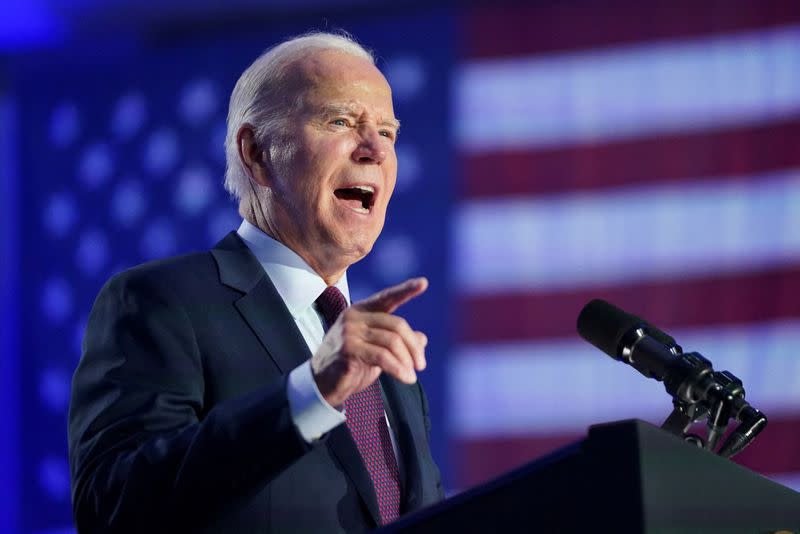Explainer-What are special counsels and why did one investigate Joe Biden?

By Brad Heath
(Reuters) - A U.S. special counsel who investigated Joe Biden and his handling of classified documents issued a report on Thursday saying that the president retained classified materials about Afghanistan after leaving the vice presidency in 2017 but will not be criminally charged.
Robert Hur, who served in senior roles at the Justice Department during the Trump administration, was appointed in January 2023 to oversee the investigation.
Hur is one of three special counsels Attorney General Merrick Garland has appointed.
A second special counsel, David Weiss, was tapped to investigate Biden's son, Hunter Biden. Biden pleaded not guilty in January to federal tax charges and separately pleaded not guilty in a case that he lied about his drug use so that he could buy a gun. Both cases were brought by Weiss.
Special counsel Jack Smith is investigating matters related to Donald Trump and his efforts to cling to power after he lost the 2020 election and classified documents found in his Mar-a-Lago estate in Florida. Trump has pleaded not guilty to charges that he plotted to overturn his 2020 defeat to Biden.
WHAT IS A SPECIAL COUNSEL?
Special counsels are appointed to handle sensitive cases - usually involving political figures or allegations of serious wrongdoing by the government. They have greater independence than is usually afforded to federal investigators.
Justice Department rules allow the attorney general to appoint one when the department would have a conflict of interest or when he or she decides that it would be in the "public interest" to have an outside lawyer handle an investigation.
The attorney general defines the scope of the investigation, but the special counsel has the power to investigate new crimes that occur during the probe, such as obstruction of justice.
Unlike other federal prosecutors, special counsels work without day-to-day control by the Justice Department. But the attorney general can still overrule decisions about how - or whether - an investigation should proceed.
WHAT POWERS DO THEY HAVE?
They have the powers of a federal prosecutor: supervising investigations, deciding whether to bring charges and taking those cases to trial.
They are required to follow the Justice Department's internal rules, including policies that spell out how to decide whether to bring charges.
They also operate with more public scrutiny. Unlike with other cases, the attorney general must notify Congress if he or she overrules one of the special counsel's decisions. And the special counsel must submit a report laying out the reasons for charging people or declining to do so. Those reports can become public, something that rarely happens in other federal investigations.
WHO CAN BE A SPECIAL COUNSEL?
A special counsel is usually a lawyer brought in from outside the Justice Department. That was the case with Smith and with Robert Mueller, the former FBI director who investigated allegations that Trump's campaign had conspired with Russia before the 2016 election. Mueller found no evidence of collusion.
In some cases, attorneys general have appointed lawyers from within the agency to be special counsels to add heft to investigations they were already supervising.
Hur was the U.S. attorney in Maryland from 2018 to 2021. Trump nominated him for the job. He was a partner at a private law firm before being tapped for the special counsel job.
HOW ARE THEY DIFFERENT FROM INDEPENDENT COUNSELS?
After the Watergate scandal involving President Richard Nixon in the 1970s, the government handled the most sensitive cases by appointing independent counsels.
Those lawyers worked with an even greater degree of independence than special counsels. The attorney general would seek their appointment, but they would be put in the job by a special panel of federal judges, and those judges could prevent the counsel from being fired.
When the statute creating independent counsels expired in 1999, it was replaced by existing Department of Justice rules for appointing special counsels.
(Reporting by Brad Heath; Editing by Don Durfee, Heather Timmons, Lisa Shumaker and Noelen Walder)


